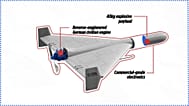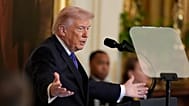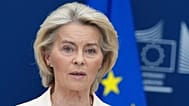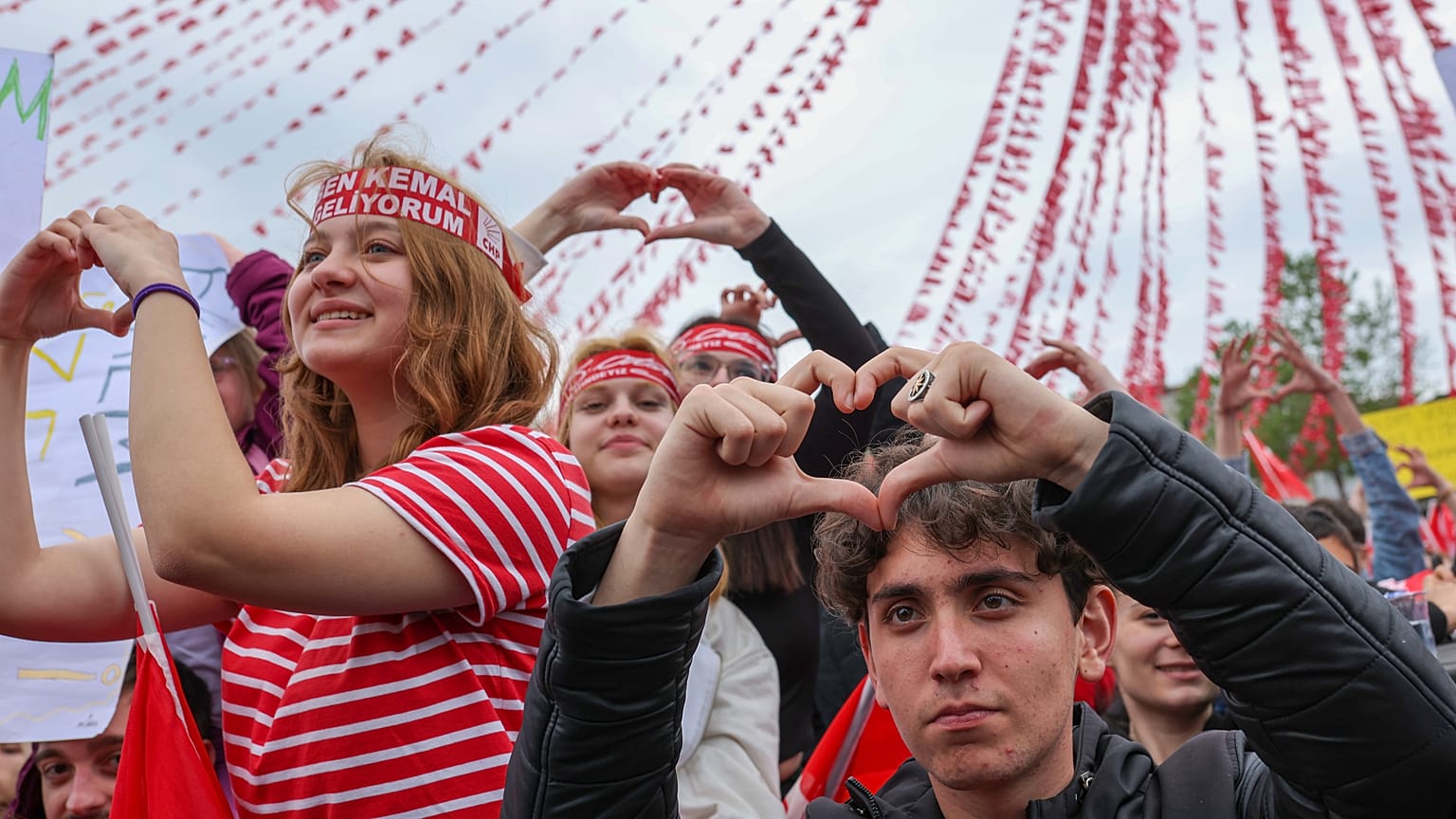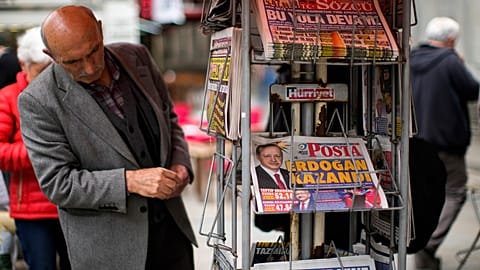Misleading AI-generated content could swing voters, AI experts say. Sunday’s presidential election in Turkey is the first major vote to face this challenge.
Turkish Internet users were surprised to discover that Kemal Kilicdaroglu, President Recep Tayyip Erdogan’s main challenger in Sunday’s election, spoke perfect English in a video posted online two weeks ago.
 ADVERTISEMENT
ADVERTISEMENT
 ADVERTISEMENT
ADVERTISEMENT
“The apple of my eye speaks English too. I promise you grandpa, we’re going to make you president,” a Twitter user commented, sharing the video of the 74-year-old candidate. But two days later, the independent Turkish fact-checking website Teyit revealed the video had been fabricated.
According to Teyit, which means confirmation in Turkish, the AI-generated video didn’t intend to fool anyone and was initially posted with a disclaimer.
“I constantly experiment with AI to learn about new functionalities. I created Kemal Kilicdaroglu’s voice on AI and used it for an English version of his candidacy speech,” said @ytc06, who was the first Twitter user to share the video with his 11 followers before it went viral.
The recent boom in access to AI tools is fuelling these kinds of situations, according to deepfake specialist Henry Ajder.
“When something designed to be satirical is taken out of context, it can be mistaken as real, especially if you're talking to an audience that has certain biases,” he told Euronews Next.
“Famous individuals and politicians are particularly at risk because they do a lot of speaking to the camera, staying still, looking straight down the lens. That’s an easier form of video to manipulate than if they’re moving around and their profile is changing,” he explained.
Flooding social media with deepfakes
On the same day the doctored video of him speaking English was released - mostly earning him supporters - Kilicdaroglu warned his social media followers of possible election interference.
“Playing Cambridge Analytica is beyond your capacity, boys,” he told government officials on Twitter, referring to the unauthorised use of personal data and targeted campaigning on social media to swing the 2016 US presidential election.
The upcoming Turkish presidential and parliamentary votes could end Erdogan’s 20-year rule and alter the country’s political landscape. They are also one of the first major elections to deal with such advanced AI.
“If you can flood sophisticated and very human-sounding speech on large networks and inauthentic accounts with one narrative, that could obviously play a role in taking over a sphere,” said Ajder.
That’s exactly what Internet users have been trying to achieve in Turkey. Over the last few months, Teyit has contended with a wave of tampered content and has debunked over 150 controversial claims relating to the elections, with eight alone on May 10. Many of these were deepfakes designed to mislead readers by accusing candidates (mostly from the opposition) of terrorism and incivility.
“It's easy to recognise that kind of content is fake, but it isn’t to people who no longer think critically,” Turkish AI expert Cem Say told Euronews Next.
The majority of Turks are polarised between Erdogan and Kilicdaroglu, and polls currently predict an extremely close race between the two candidates.
The incumbent president’s Justice and Development Party (AKP) has repeatedly taken stabs at its competitors, most recently at its biggest rally in Istanbul, on May 7, when an undisclosed edit of Kilicdaroglu’s campaign video was played on giant screens.
The deepfake version had added in Murat Karayılan, a leader of the Kurdistan Workers' Party (PKK) - which is listed by several other countries and the EU as a terrorist organisation - clapping along to the opposition’s campaign song, while lyrics “come on, let’s all go vote” blasted from speakers.
In a video shared on social media, Erdogan asked an estimated 1.7 million supporters attending his rally “Would my national and local countrymen vote for these people?” before adding: “Look at this, it’s really important!”.
Another presidential candidate, Muharrem Ince, dropped out of the race on Thursday after the release of an alleged sex tape he said was a deepfake.
The founder and leader of the centre-left, secular and nationalist Homeland Party, who was Erdogan’s main challenger in the 2018 election, said he had suffered “character assassination” throughout this year’s campaign.
“What I’ve seen in the last 45 days, I’ve not come across in the past 45 years,” Ince said in his resignation speech.
“Fake videos, fake pictures… they put my face on a video taken from an Israeli porn website,” he added, blaming the country’s journalists and public prosecutors for not protecting him from the “fury of slander”.
Experts like Say fear even more aggressive, last-minute tactics. “Deepfakes could be used on election day with the motivation to discourage people from going to the polls or to influence their decision,” he said, adding this would leave “no time for verification”.
What can be done?
With advances in artificial intelligence showing no sign of slowing down, debunking experts are in a race against AI content generators. Just as in Turkey, deepfakes created by official sources have started making their way onto the political scene in the United States.
After President Joe Biden announced he’d be running for reelection, the opposing Republican National Committee released an AI-engineered video depicting a dystopian future under a second Biden term. Experts already warn deepfakes will be one of the main challenges of the 2024 US presidential election.
“The detection side of things is a little bit depressing at the moment,” Ajder said. According to him, tools certifying the provenance of content are promising, but risk creating a media hierarchy: if real content isn’t certified, “people can dismiss it as fake when convenient,” he explained. His recommendation is to stick to media sources that are well-known and can do fact-checking.
That’s very tricky in Turkey, where 90 per cent of domestic media is under government control, according to the press freedom group Reporters Without Borders. This - combined with an October 2022 law that aims to limit “disinformation” - means very few outlets actually report on deepfakes in Turkey.
Anadolu, the Turkish government news agency, was accused of withholding the results of the 2019 Istanbul mayoral elections won by the opposition, and this month, a report by the OSCE’s election observation mission raised concerns over the impartiality of the country’s media regulation body, RTÜK.
Just days before the nation heads to the polls, Turkish independent media outlet 140journos’ post-election series is perhaps the most powerful at imagining what might come next - here again with the help of artificial intelligence. Published in March using the AI image generator Midjourney and the AI text generator ChatGPT, it offers two narratives for Turkey’s future.
The first story depicts a defeated and freshly retired Erdogan. “In the beginning, it was a bit difficult. However, over time, I took the opportunity to spend more time with my family, to be closer to nature and to spend more time for myself,” a bot impersonating the politician says, while photos of him having tea in a robe illustrate the post.
In the other narrative, Erdogan has never given up power and Turkey has become a Star Wars-style empire aiming to “build universal peace”.
To the question “What were the biggest challenges in achieving this success?”, the Erdogan-impersonating AI replies: “One of our greatest challenges was to keep up with the new order of the world and the universe, and to follow technological developments closely and constantly adapt to them” - a nod to the challenge all politicians now face with AI.

